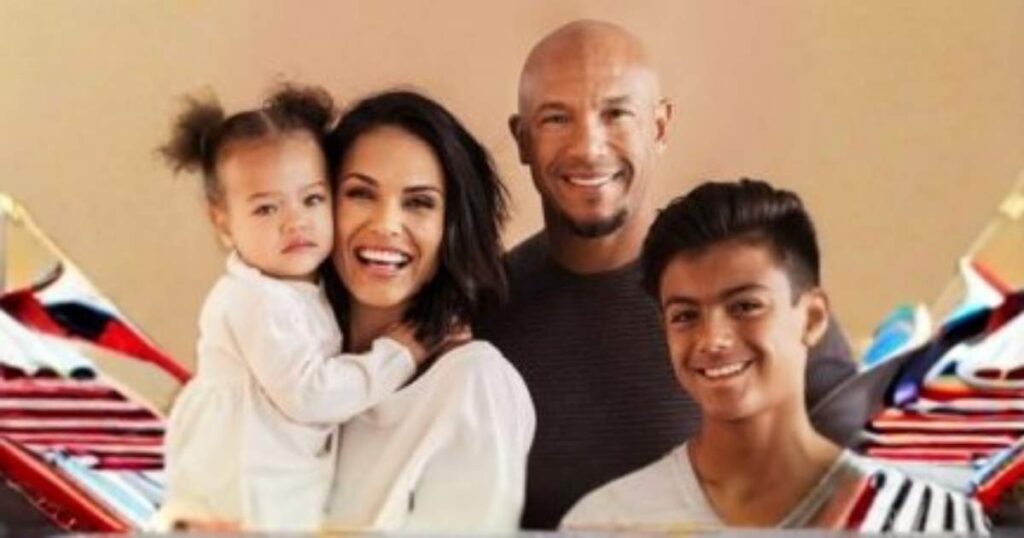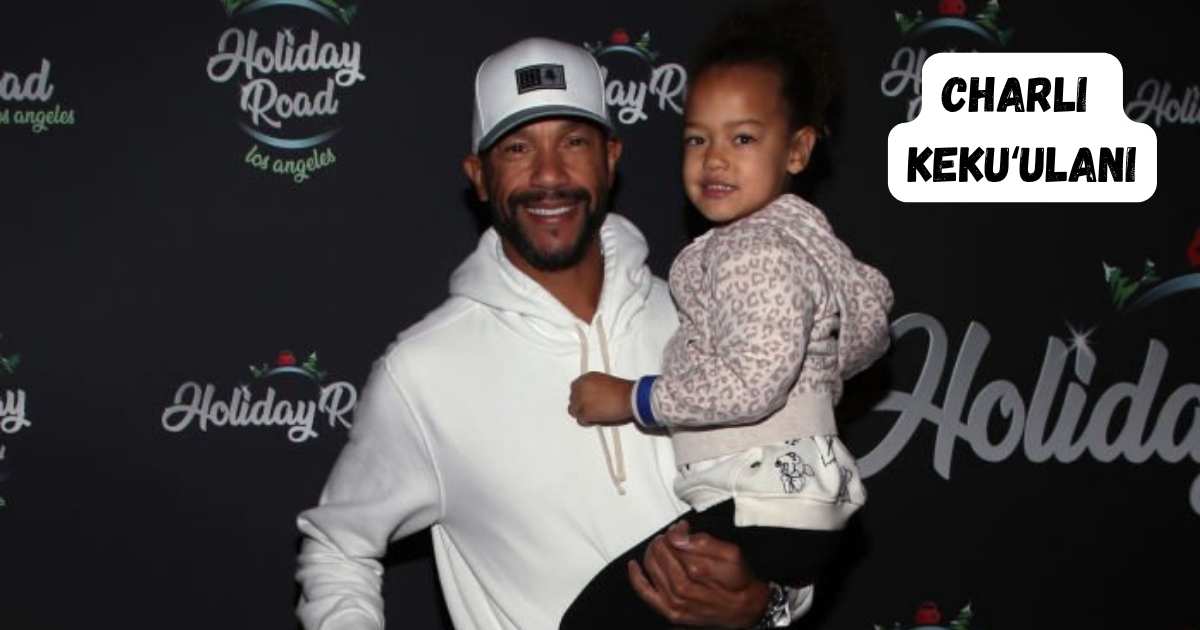In the gentle rhythm of ocean waves and ancestral chants, something powerful stirs. Charli Kekuʻulani stands as a living bridge between worlds—a guardian of traditions that colonization tried erasing. Her story isn’t just personal history. It’s a testament to cultural endurance and identity.
What does heritage mean when modernization threatens tradition? For Native Hawaiian families, the answer lives in names. Each syllable carries mana, spiritual power that connects past to present. Charli Kekuʻulani Bishop embodies this connection, her very name a declaration of cultural continuity.
This is her story. More importantly, it’s Hawaii’s story—one of resilience, resistance, and unwavering pride.
The Enduring Spirit of a Name
Hawaiian names aren’t mere labels. They’re vessels of spiritual energy and ancestral memory. Unlike Western naming conventions that prioritize sound or family honor, ʻŌlelo Hawaiʻi (Hawaiian language) names embed entire narratives within their syllables.
When parents bestow a Hawaiian name, they’re not just identifying their child. They’re binding that child to genealogy, cosmology, and cultural responsibility. The name becomes the person’s kuleana—their duty to honor what came before.
Charli Kekuʻulani carries this weight beautifully. Her name bridges contemporary American culture with ancient Hawaiian traditions. While “Charli” offers accessibility in modern America, “Kekuʻulani” roots her firmly in island heritage.
Consider this contrast:
| Western Naming | Hawaiian Naming Traditions |
| Often chosen for sound appeal | Selected through spiritual guidance |
| Primarily identifies individual | Connects person to ancestors |
| Static throughout life | Can change with significant events |
| Personal choice dominates | Community and kupuna involved |
This cultural difference reveals why Hawaiian naming traditions matter so profoundly. Names aren’t just words—they’re prophecies, protections, and promises.
The Meaning Woven into Kekuʻulani
Every Hawaiian name tells a story. The name Kekuʻulani unfolds like a sacred chant, each component adding layers of meaning and spiritual significance.
A Name from the Heavens
Breaking down “Kekuʻulani” reveals its celestial poetry:
- Ke = the (definite article, marking specificity)
- Kuʻu = my, mine (possessive, deeply intimate)
- Lani = heaven, sky, royal, chief
Together, these elements create “my heavenly one” or “my royal sky.” The meaning of Hawaiian names like this reflects deep cosmological beliefs. Ancient Hawaiians viewed the sky as divine realm. Stars guided voyagers across vast oceans. Clouds brought life-giving rain to valleys below.
The symbolism in Hawaiian names connects earthly existence to spiritual dimensions. Mountains touched the sky, becoming sacred meeting points between realms. Chiefs claimed descent from sky gods. This belief system infuses “Kekuʻulani” with profound spiritual weight.
Imagine standing on a volcanic peak at dawn. The sky transforms from darkness to brilliant light. That liminal space—where earth meets heaven—that’s what this name captures.
Echoes of Royalty
The element “lani” carries special significance in Hawaiian royalty. Aliʻi (chiefs) frequently incorporated this term into their names, marking their divine right to lead.
Historical examples include:
- Queen Liliʻuokalani (last monarch of Hawaiian Kingdom)
- King Kalākaua (known as the “Merrie Monarch”)
- Princess Kaʻiulani (heir apparent before annexation)
When families today choose names with “lani,” they’re reclaiming what American colonization attempted destroying. The legacy of Hawaiian royalty lives on through these naming choices. Elizabeth Kekuʻuapoiwa Kekuʻulani and others like her maintain this tradition.
Hawaiian history and lineage flows through such names. They’re acts of resistance, declarations of continued sovereignty. Each child named with royal elements carries forward ancestral mana.
A Bridge to the Past: Hawaiian Naming Traditions
Traditional Hawaiian values shaped every aspect of life, including naming ceremonies. The process was deeply spiritual, involving entire communities and requiring careful spiritual discernment.
Sacred naming customs followed specific protocols:
- Dream Guidance – Kupuna (elders) received names through dreams or visions
- Birth Circumstances – Events surrounding birth influenced name selection
- Ancestral Connection – Names honored specific kupuna or significant events
- Hidden Names – Secret names protected children from spiritual harm
- Multiple Names – Individuals received different names throughout life stages
The importance of names in Hawaii extended beyond identification. Names could:
- Protect against malevolent spirits
- Ensure prosperity and health
- Connect children to powerful ancestors
- Mark significant family events
- Predict future accomplishments
One particularly powerful tradition involved name symbolism. If a child was born during a storm, their name might reference thunder or wind. Born during abundant harvest? The name could celebrate fertility and growth.
Cultural storytelling happened through names. Each generation added chapters to family narratives. Generational connection strengthened as children learned the stories behind their names.
Modern families like Charli Kekuʻulani Bishop’s maintain these practices despite cultural pressure. They’re preserving cultural traditions against tremendous odds.
The Modern Guardian of a Legacy
A Family Rooted in Culture

Hawaiian heritage doesn’t exist in museums alone. It thrives in families committed to daily cultural practice. Charli Kekuʻulani’s family exemplifies this commitment.
Her parents, Stephen Bishop and Jesiree Dizon, made deliberate choices about cultural transmission. They understood that heritage and identity require active maintenance. Language classes, cultural events, traditional practices—all became family priorities.
Modern Hawaiian families face unique challenges. Mainland life distances them from island traditions. English dominates daily communication. Popular culture overshadows indigenous practices.
Yet these families persist. They create spaces where ʻŌlelo Hawaiʻi flourishes. They teach children traditional navigation techniques. They practice hula, maintaining the dance’s spiritual essence.
Key cultural practices maintained:
- Daily use of Hawaiian language phrases
- Traditional foods prepared using ancestral methods
- Participation in cultural ceremonies and celebrations
- Learning genealogy through oral storytelling
- Studying Hawaiian history from indigenous perspectives
- Supporting Hawaiian language revival efforts
Family roots and heritage grow stronger through intentional cultivation. Charli Kekuʻulani learns not just facts about Hawaiian culture—she lives it. Her cultural identity isn’t theoretical; it’s embodied.
Passing on the Torch
Native Hawaiian pride manifests differently across generations. For Charli Kekuʻulani, it means becoming a cultural ambassador. She carries forward traditions while navigating contemporary American life.
Cultural continuity requires adaptability. Young cultural bearers must find ways to honor ancestors while embracing modern realities. Social media becomes a tool for sharing Hawaiian spiritual beliefs. Digital platforms spread knowledge about island traditions.
Honoring ancestors doesn’t mean simply replicating their lives. It means understanding their values and applying them today. When Charli Kekuʻulani shares her name’s story, she’s performing cultural work. She’s teaching others why heritage and legacy matter.
The ripple effects spread outward. One conversation about Hawaiian ancestry sparks another person’s cultural curiosity. One social media post about traditional Hawaiian values reaches thousands. One child confidently using their Hawaiian name inspires others.
Why the Story of Charli Kekuʻulani Matters
Cultural preservation isn’t abstract academic work. It’s survival. For indigenous peoples worldwide, maintaining cultural practices means resisting erasure.
Hawaiian culture faces specific threats:
- Language endangerment (only ~25,000 fluent speakers remain)
- Tourism commodification distorting authentic traditions
- Mainland stereotypes reducing rich culture to clichés
- Land displacement severing indigenous connections
Yet hope persists. Stories like Charli Kekuʻulani’s demonstrate cultural endurance. They prove that connection to ancestors strengthens rather than diminishes over time.
The spirit of Hawaii lives in every child receiving a Hawaiian name. It thrives in families choosing cultural education over convenience. It pulses through communities supporting Hawaiian baby names and traditional practices.
What we can learn:
- Identity through names provides powerful grounding
- Heritage requires active, intentional maintenance
- Cultural diversity enriches everyone’s understanding
- Indigenous perspectives offer vital wisdom for modern challenges
Supporting cultural preservation means more than passive appreciation. It requires:
- Respecting indigenous sovereignty and self-determination
- Supporting Hawaiian-led cultural organizations financially
- Learning accurate history rather than romanticized versions
- Recognizing ongoing impacts of colonization
Hawaiian family legacy extends beyond individual families. It represents broader indigenous resistance and resilience worldwide.
FAQs
What does the name Kekuʻulani mean?
The name Kekuʻulani translates to “a fragment of heaven” in Hawaiian, symbolizing something precious, divine, and deeply spiritual.
Who are Charli Kekuʻulani’s parents?
Charli Kekuʻulani Bishop is the daughter of actor Stephen Bishop and model-actress Jesiree Dizon, who proudly embraces her Hawaiian heritage.
Why are Hawaiian names so important to cultural identity?
Hawaiian names carry spiritual and ancestral meanings, serving as a bridge between generations and preserving the essence of cultural identity.
How do modern Hawaiian families preserve their cultural heritage?
Many families honor their roots by passing down traditional names, practicing ʻŌlelo Hawaiʻi, and teaching the values and stories of their ancestors.
What connection does Kekuʻulani have to Hawaiian royalty?
The name Kekuʻulani is linked to High Chiefess Elizabeth Kekuʻuapoiwa Kekuʻulani, a noble figure in Hawaiian history, symbolizing grace and royal lineage.
Conclusion: A Legacy That Lives On
As waves continue their eternal rhythm against volcanic shores, Charli Kekuʻulani embodies living connection to something greater than herself. Her name—that beautiful gift from heaven—carries forward centuries of wisdom, resistance, and hope.
Cultural endurance isn’t guaranteed. It requires conscious commitment from each generation. When families choose Hawaiian names, they’re planting seeds for future forests. When children learn ʻŌlelo Hawaiʻi, they’re ensuring their ancestors’ voices don’t fade.
The story of Charli Kekuʻulani reminds us that heritage lives in choices we make daily. It flourishes in names we honor, stories we tell, traditions we maintain. Modern Hawaiian names don’t dilute culture—they adapt it for continued relevance.

